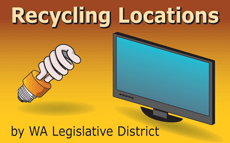How plastic is a function of Colonialism
Dec. 21, 2019, Teen Vogue: "Perhaps you've heard that the top five countries responsible for most marine plastics are China, Indonesia, the Philippines, Vietnam, and Sri Lanka. Some of these countries are also the ones receiving a disproportionate amount of plastic waste from other regions. They also happen to be places where waste systems do not mimic American curb-to-landfill systems. These regions are framed in scientific articles, the media, and policy papers as “mismanaging” their waste. This is a perpetuation of colonialist mindset, discourses that have long associated some uses of land as civilized and moral and other uses as savage and deficient...
In September 2015, an American-based environmental NGO called the Ocean Conservancy released a report looking for solutions to marine plastic pollution. One of the core recommendations was for countries in Southeast Asia to work with foreign-funded industries to build incinerators to burn plastic waste. This recommendation follows a long line of colonial acts from various entities, from access to Indigenous land to extract oil and gas to make plastics, to the production of disposable plastics that requires land to store and contain them, to pointing the finger at local and Indigenous peoples for “mismanaging” imported waste, and then gaining access to land to solve their uncivilized approach to waste management.
The Philippines arm of the Global Alliance for Incinerator Alternatives (GAIA), a grassroots environmental-justice coalition, rejected the Ocean Conservancy recommendation for incineration. They argued against the health and environmental impacts of burning waste, particularly in countries that struggle with air pollution, such as in China, where increasing protests against waste-to-energy incinerators occur in a context where 69% of current incinerators have records of violating environmental air pollution standards. They talked about the costs of building and maintaining this infrastructure and what it means for debt to foreign bodies. They wrote about how burning waste and plastic perpetuates climate-changing fossil fuel extraction. In short, they argued against the entire system that assumes access to land for come-from-away industry and environmentalists...
Disposability is not the result of the bad behavior of some individuals choosing to buy some things and not others. Consumer choice as a concept makes no sense in many places. In Nain [Canada], there is one store. There is one kind of ketchup you can buy. There is one type of lettuce. Both are in plastic packaging because the producers assume that there is a place for that packaging to go. It goes into the dump, where it is usually burned so bears aren't attracted to town, and then the scraps blow into the water. There is no way to behave differently. Bag bans don't eliminate the problem. Degradable plastics made of corn would move the problem onto someone else's land. Shipping Nain's plastics to a recycling plant in Vietnam or even elsewhere in Canada produces pollution and plastic leakage on other lands still. Disposable plastics are simply not possible without colonizer access to land. The end of colonialism will result in the end of plastic disposability."
